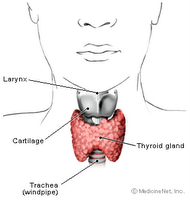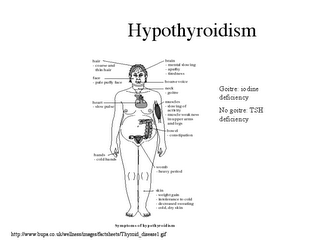How to Manage Hypothyroidism

Hypothyroid Disease
The better way to manage this often hidden disease.
The better way to manage this often hidden disease.
By JP Saleeby, MD
The thyroid gland and the hormones it secretes play a crucial role in our health and well being. The thyroid hormones act as messengers for body function, performance and metabolism. For example they play a major role in weight gain and loss. Thyroid hormones are a mixture of mono-, di-iodothryonine, T3 (triiodotyrosine) and T4 (thyroxine). The hormones most traditional physicians are concerned with and replace is the singular thyroxine or T4 and usually in a synthetic form (levothyroxine under brand names such as Unithroid, Synthroid and Levothroid). Occasionally traditionally trained physicians (endocrinologists) will prescribe a synthetic T4-T3 drug liotrix (Thyrolar) and very rarely will they add something called liothyronine (Cytomel) a T3 synthetic. These prescribing habits are based on the education of the vast majority of American physicians after the advent of synthetic thyroid preparations. Much money has been spent by pharmaceutical companies who produce the synthetic hormones to promote their products to physicians. Hence, most of the post graduate education on thyroid replacement therapy is obtained from representatives and their “educational” material distributed by these companies. The use of desiccated natural animal thyroid glandulars (usually of porcine tissue) fell out of favor for no other reason than the aledged “new & improved” products emerging in the market place.
Is the synthetic thyroid drug better than the natural? No, just the contrary and I will outline it here very simply. Detractors of natural thyroid bark about the levels of the commercially available products such as Armour Thyroid, Nathroid, and Westhroid as not being reliable and consistent from one pill to the next. This may have been true 40 years ago, but today’s pharmaceutical processing and manufacturing techniques can assure quality and consistency. The problems lie not in the natural, but in the manufacturing practices of the synthetic thyroid hormones. Since Synthroid, manufactured by Abbott Pharmaceutical company (formerly by Knoll), came to market prior to 1962 it was never officially approved by the FDA and consequently had to file for New Drug Approval (NDA) in 1999. If you followed the news back then, the FDA had to step in and demand one manufacturer to cease production until the product was approved. Therefore, the physicians who “banter on” about the pitfalls of Armour Thyroid have no real license to do so. They only need to take a closer look at what they are routinely prescribing and realize what big pharma preaches may not hold it's weight.
Despite the many controversies synthetic thyroid has had over the years, it still remains the 3rd most prescribed drug class in America with over $541 million in sales in 2000. Industry greed can be seen in that from the year 2000 to 2001 there was an increase in the cost of this drug to consumer by eight and a half (8 ½) times the rate of inflation. Never the less, a historically well tolerated and well manufactured “natural” hormone is still available and FDA approved for thyroid disorders and should be embraced by more physicians in this country not just for it's pharmokenetic properties, but for it's low cost.
How is Thyroid disease diagnosed? Hypothyroidism (low levels of circulating thyroid hormone) affects 2% of the American population, women more so then men. It is very important for routine screening to occur. The American Thyroid Association recommends testing Thyroid Stimulating Hormone (TSH) at age 35 and every 5 years thereafter especially in women. I tend to test more often.
Traditionalists use the basic TSH and T4 serum tests to diagnose hypothyroidism. However, thyroid dysfunction can occur in individuals with “normal” levels of serum TSH and T4. When a patient exhibits signs and symptoms of hypothyroidism the hunt should go on to diagnose the disease instead of relying on just these two lab tests to rule out dysfunction. In my practice I use a hypersensitive TSH (hsTSH) and check for Free T4 and Free T3 levels (Free indicating non-protein bound hormone). I may also screen for something called reverse T3 or rT3, which may be elevated when T4 is not converted to T3 in the peripheral tissues. Reverse T3 (rT3) is not bioactive and cannot exert the same effect as T3. When the enzyme that converts T4 to T3 is deficient, T4 gets converted to rT3 in greater quantities. The condition where hypothyroidism actually exists with symptomatic patients yet "normal" lab tests is commonly referred to as Sick Euthyroid Syndrome. While levels of TSH and T4 may be normal, levels of Free T3 are low and rT3 tend to be higher. Here is where many with “lab-normal” hypothyroidism are overlooked.
T4 has a longer half-life than the converted T3, but T3 is about four (4) times more potent and exacts much more effect as a “hormone messenger.” Incidentally T3 is better absorbed by the intestines when taken orally than is T4, so a combination of T3/T4 makes even more sense in this setting of hormone replacement.
There are also other thyroid disorders that occur when the body produces antibodies against the hormone or the gland itself. These have to be tested for as well. Women are at more risk for thyroid disease than are men and there are a large number of women who develop thyroid disease 6 to 8 weeks postpartum (after childbirth). Dosing of thyroid in pregnant hypothyroid women is also tricky and may require an increased of 45% of the usual dose to achieve balance. Mothers-to-be are especially important patients to monitor. Those suffering from “acute depression” should also have hypothyroidism ruled out before antidepressant drugs are prescribed. Gross changes in body weight, skin texture, hair loss and energy levels should also alert the physician to test for hypothyroidism.


---------------------
Dr. Saleeby was the medical director for Savannah’s first integrative and preventive medical center, he currently works full time in Emergency Medicine at LRMC, Hinesville, GA. He manages many patients on natural thyroid replacement therapy via telemedicine consultations at www.saleeby.net. He can be reached by email at jpsaleeby@aol.com.
Labels: Thyroid


0 Comments:
Post a Comment
Subscribe to Post Comments [Atom]
<< Home